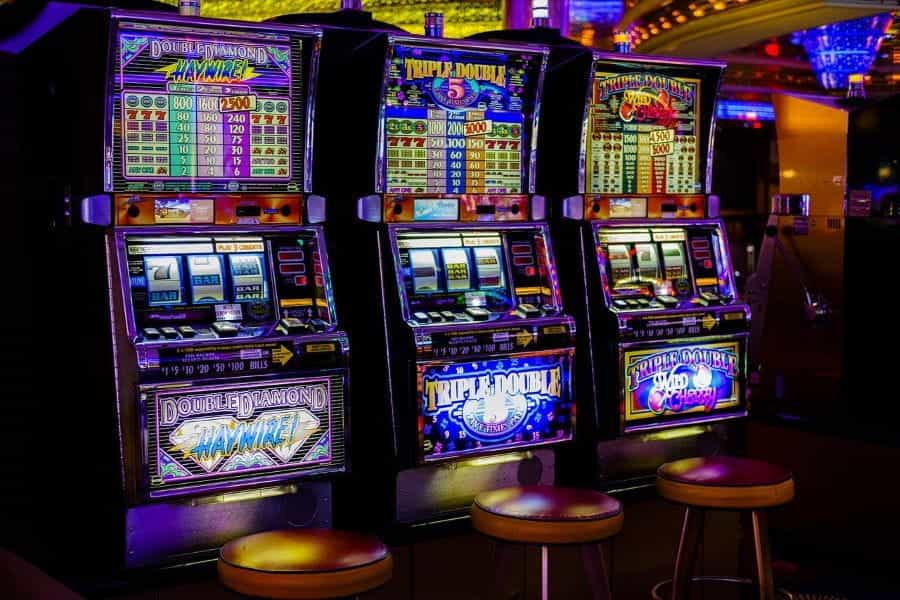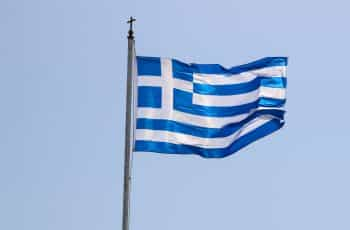Ban of Slot Advertising in Greece
Greek legislators have passed laws designed to mitigate the risk of increased problem gambling that online random number generator (RNG) games pose to the public. These games will now be subject to a time limit of three seconds between spins and will also no longer be allowed to be advertised in places other than the website of the operator that is offering them. These rules have been brought in a series of secondary laws that make up a part of the country’s gambling reform.

The Greek government has made several attempts to reduce the risk that RNG games pose to the public. After attempts to outlaw the games all together were thwarted by threats of a legal challenge the government has begun to implement regulations to limit their impact on players. ©Bru-nO/Pixabay
These reforms have been targeted at online slot games, which are often subject to high levels of scrutiny due to the tactics such games to keep players engaged and wagering money for long periods. The new legislation legally mandates a limit to the amount of money that consumers can wager per spin; at €2. It is hoped that this limit, alongside the time limits and rules on advertising, will reduce the incidence of dangerous gambling behavior.
Greek Gambling Reforms
The Greek government has been trying to regulate RNG games in the country for some time now. In the latter stages of 2019, the parliament passed several laws that were designed to fully reform the gambling industry in the country. This bill initially included a provision to outlaw the use of RNG games by operators but this was a highly controversial area.
Operators in the country threatened the government with a legal backlash should the prohibition of these games be set into law. At the time in Greece, there were 24 license holders. All of these operators threatened to support a decision to mount a legal challenge unless this provision was excluded from the bill. Any legal process would have resulted in far-reaching delays to the implementation of the bill and, as such, the government caved an excluded any prohibition of RNG games from the reforms.
The decision to continue to allow RNG games was described as a win-win for both the government and for operators by many in the industry. There were significant concerns that if a ban had been implemented, the black market, would have just taken over the practice and would have grown as a result which would harm channelization rates in Greece.
Additionally, operators would have lost a significant amount of their income should a ban have been implemented. According to some estimates, operators could have lost from 10-40% of their revenue. Estimates suggested that this, alongside the growth of the black market would have led to around 40% shrinkage of the market as a whole, which would be disastrous for both operators and legislators.
This reform bill, which was passed in October of 2019, did manage to make other changes to the landscape of the industry, however. These modifications included lowering the license fee for operators from €5 million down to €3 million as well as changing the tax structure for the industry. Previously, a 20% corporation tax was applied after a 35% tax on gross gaming revenue but now it is applied before the gross gaming revenue tax.
Alternate Regulations
Rather than introduce a blanket ban on RNG games in Greece, the government decided to introduce gradual changes to how they are implemented and advertised in the gambling landscape. These changes included a €2 cap that players can spend per spin in these slot games as well as a limit on the amount that a player can win in a single session, which was set at €5,000.
These were introduced some time ago in the form of the primary regulations on these practices in the industry. More recently, however, legislators have drafted a second round of regulations that have since been passed by parliament and are now being implemented. These regulations received a negative reaction from many, and were lambasted by the International Betting Integrity Association.
These new restrictions tackle the advertising practices of operators in Greece and also change the amount of time that players have to wait in between spins on slot games. There is an exception to the limit on when players can start a new game cycle which is for online poker. This game is exempt from the three-second rule that has been implemented on other online casino games.
In addition to these rules, there will also be another cap on the maximum amount of money that consumers can win from any one session of casino games. This limit will be set at €70,000.
The main focus of the second round of regulations was advertising, however. These reforms on the advertising practices of those in the industry do not just affect how they are allowed to promote RNG games. There will also be a whole suite of changes to the general advertisement of the industry.
Affiliate marketing groups will be expected to sign an agreement with licensed operators that will ensure their cooperation in such matters. This agreement will outline how fees paid to affiliates are calculated as well as the time at which these payments are made. This is designed to improve the transparency of advertising in Greece and, as such, these agreements will need to be reported to the Hellenic Gaming Commission – the Greek gambling regulator.
One form of advertising gambling services that has gained a lot of traction and mainstream appeal over recent years is the use of social media to promote games. The new regulations will still allow operators to market their games in this way, but only if they can ensure that the ads will only be seen by those who are over the age of 21.
In general, any marketing strategy employed by operators will not be allowed to target minors. The legislation that has been passed classes any ads that feature characters who look like minors to be targeting this age group. Additionally, operators will not be allowed to advertise their services on platforms that are aimed at minors, such as programs designed for young people or on websites designed for them.
On top of this, the legislation will prevent operators from creating advertisements that suggest to adolescents and young adults that gambling is a part of growing up and the transition from childhood to adulthood.
Ads will also no longer be permitted to distort the image of gambling in such a way that they give a positive view of the practice at the expense of explaining the negative outcomes. This means that ads will not be allowed to show things like the revenue generated by gambling being recovered as tax or going towards good causes in Greece.
Additionally, ads in the country will not be allowed to falsely represent the odds of winning a game. This means that any statements in ads about the chances of winning need to be factual and accurate. Building on this, the government has also outlawed ads from suggesting that players can predict what will happen in the games or suggest that RNG games are in any way skill-based.
Finally, the government has decided that all adverts that are put out by operators in Greece must clearly state the legal gambling age and must also refer to the Hellenic Gambling Commission in them.



